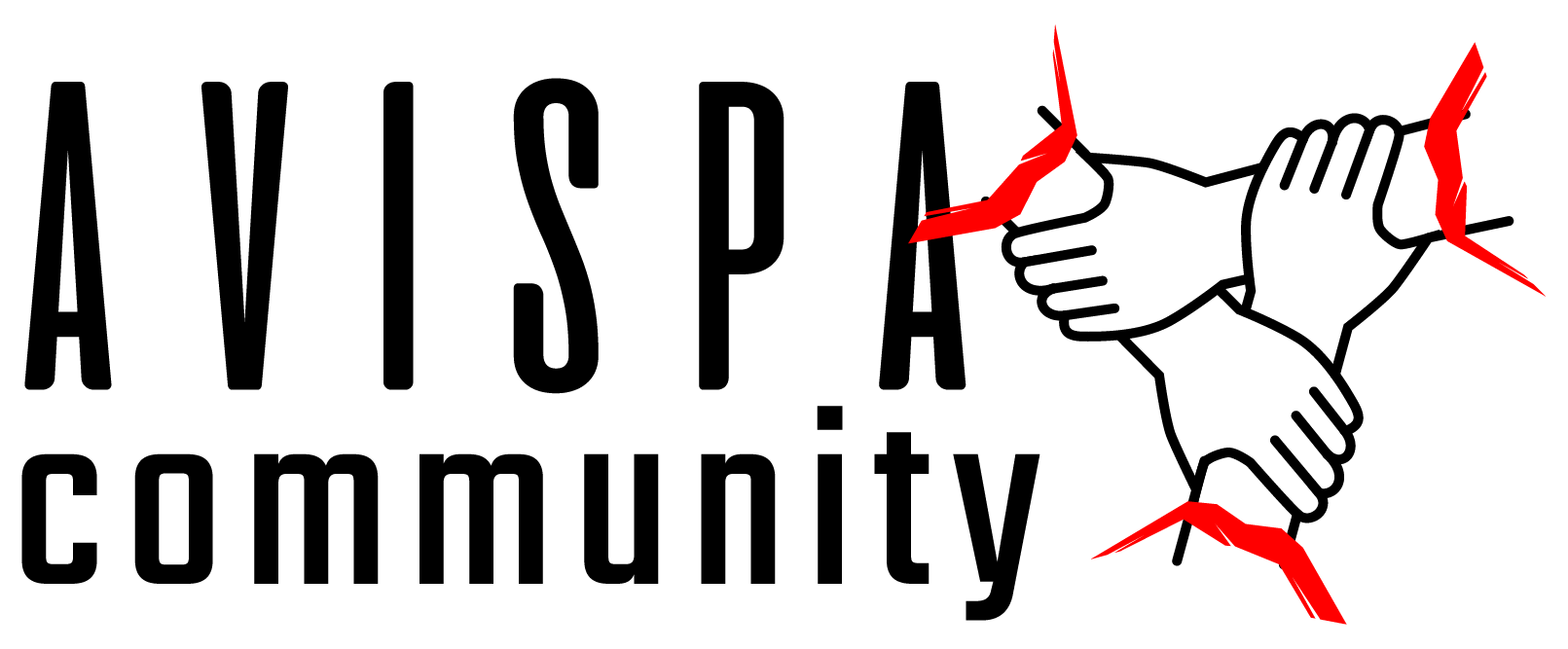Cover image: Hundreds of Indigenous Lencas mobilize in Tegucigalpa to demand the recognition of their ancestral lands.
Following a week of mobilizations, more than 400 Indigenous Lencas from 12 communities in southeastern Honduras reached a historic agreement with the National Agrarian Institute (INA). The state has committed to the communal titling of more than 9,000 manzanas of land where more than 900 families live.
The Consejo Civico de Organizaciones Populares e Indígenas de Honduras (COPINH), or Civic Council of Popular and Indigenous Organizations of Honduras, an organization made up of Lenca communities, announced that the agreement was signed with agrarian authorities on Friday, July 19.
The agreement was the result of mobilizations of the Lenca communities, Montaña Verde, Limoncillo, El Achiotal, Río Blanco, Wise, El Naranjo, 1 de Agosto and Grupo Campesino Nueva Esperanza, who revindicate the communal possession of their territories.
“COPINH will be monitoring that these agreements reached with the INA are fulfilled, to ensure respect, along with just and prompt implementation. If they are not fulfilled, there will be more protests in the capital city. This vigilance is not only a duty, but a commitment to our community, to the future generations, who depend on the protection of our territories,” explained the organization through a statement following the announcement of the agreements.
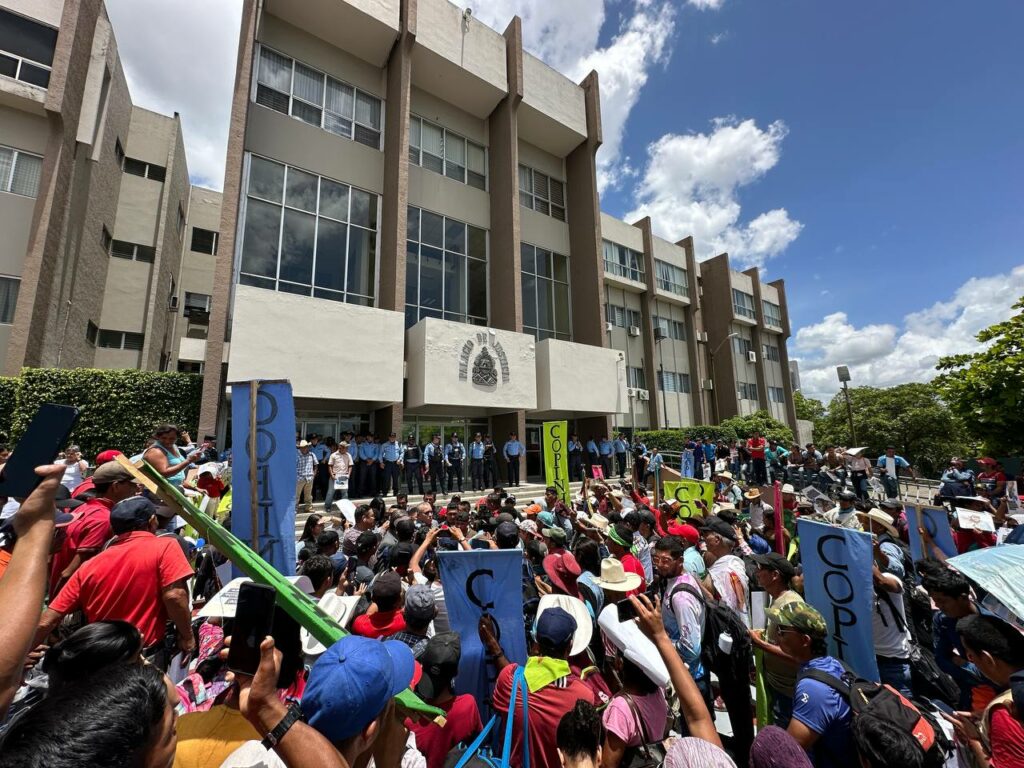
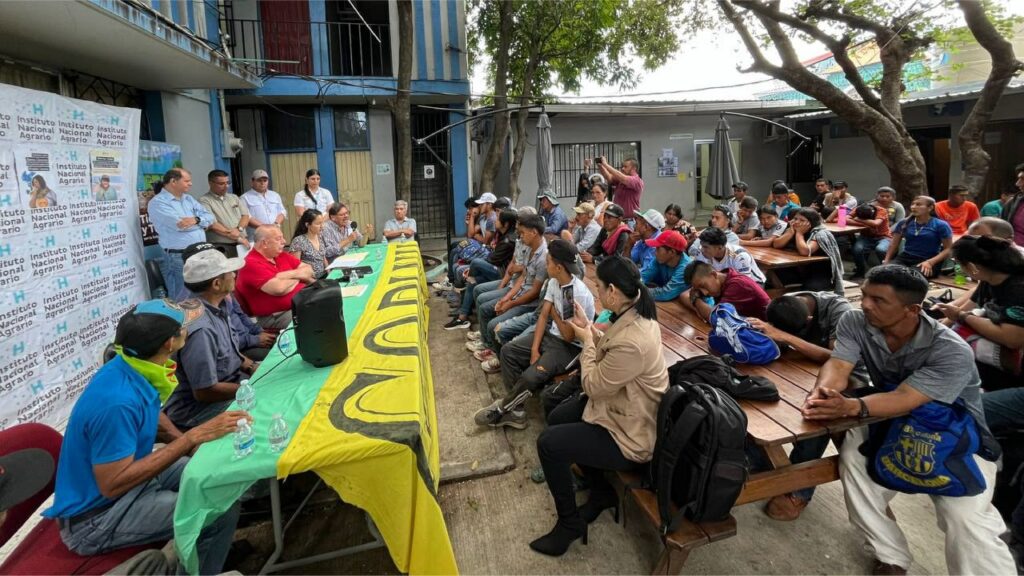
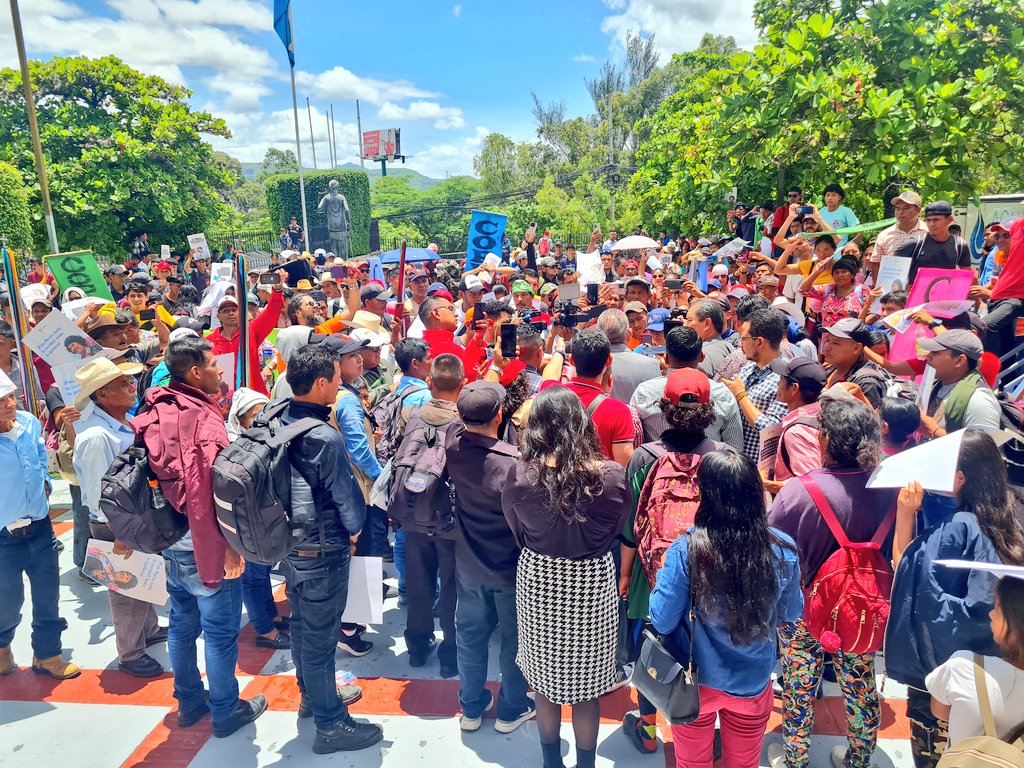
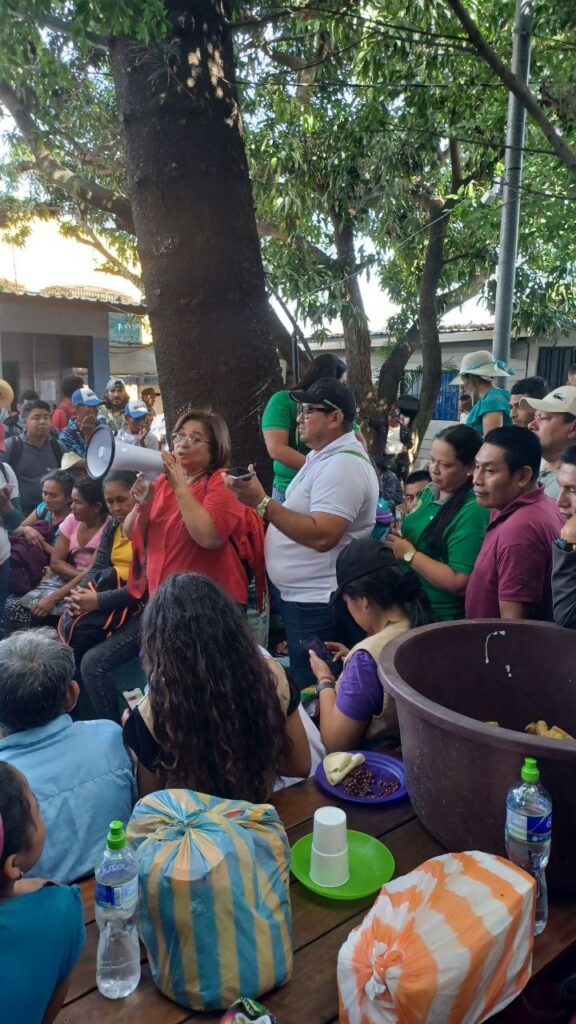
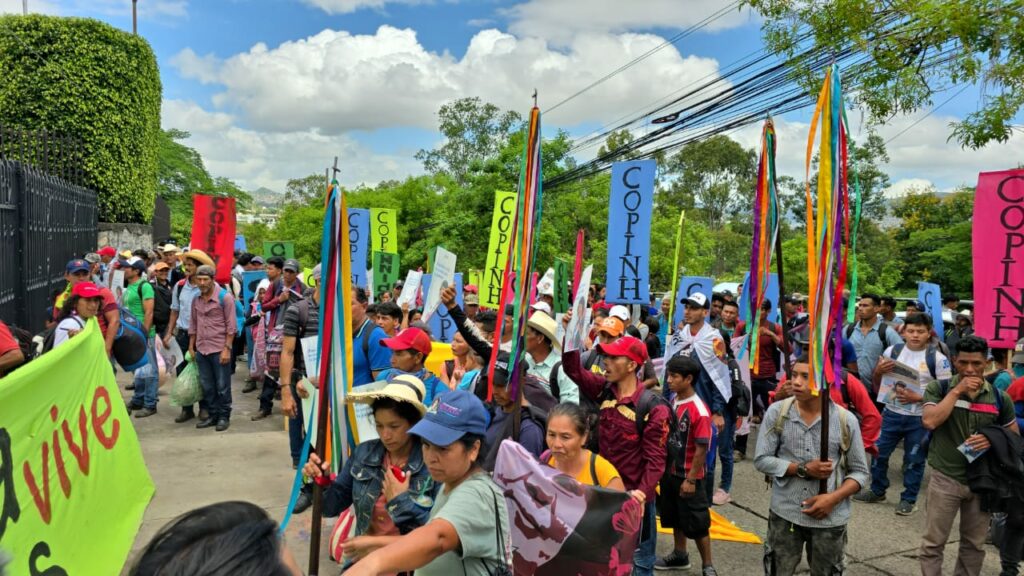
The organization explained that the state committed to a concrete time frame and to specific responsibilities for the titling of the Lenca territories. “In particular the titling of four communal lands within 20 days, and the steady advance in the remaining processes. This agreement represents a major step forward toward legal certainty of the lands that our communities have possessed for generations, after more than 25 years of waiting.”
Bertha Zúñiga Cáceres, coordinator of COPINH, celebrated the agreements which will make possible the ratification of the communal possession of the Lenca lands. “These are ancestral lands, lands of the Lenca people, yet there is legal uncertainty which exposes us to judicial persecution,” she argues. In the affected communities, private property titles have been presented which causes the Indigenous population to be accused of the crime of “usurpation of lands.”
Zúñiga says that the agreement provides steps toward the solution of some cases, but there still exist other communities who demand the involvement of the National Agrarian Commission, and even the Supreme Court of the Nation, “to orient the local judges, who have played very nefarious roles in delaying processes and hindering communal possession of the lands.”
Distrust
It should be noted that the Plataforma Agraria del Aguán and the Coordinadora de Organizaciones Populares del Aguán (COPA)--campesino organizations from the valley of Bajo Aguán, in the department of Colón, who have led the revindication of campesino lands dispossessed by oil palm agroindustry--also participated in the protests.
Esly Banegas, member of COPA, indicated that there are currently multiple organizations that have signed agreements with the national administration, led by President Xiomara Castro, to reduce conflicts in the titling of lands. However, they signaled that despite the political will, “it is not reflected in solutions to the problems that have been caused by oligarchic sectors against campesino and Indigenous families.”
Justice
On the same days of action, Indigenous Lencas also mobilized at the Supreme Court of Justice of Honduras, to demand the confirmation of the evictions of eight people condemned for the assassination of the leader Berta Cáceres, which took place in March 2016.
Accompanied by campesino and human rights organizations, the Indigenous Lenca people stood up to demand a response from the criminal court judges, who have still not ruled on two cessation appeals presented by the defense, seeking to invalidate the convictions emitted in previous years.
“I cannot give an exact day, because it would be irresponsible of me to do that. What I can tell you is that we are working hard and that this will be done in the shortest time possible and it will be public knowledge,” responded the judge Mario Díaz to the Lenca protest.
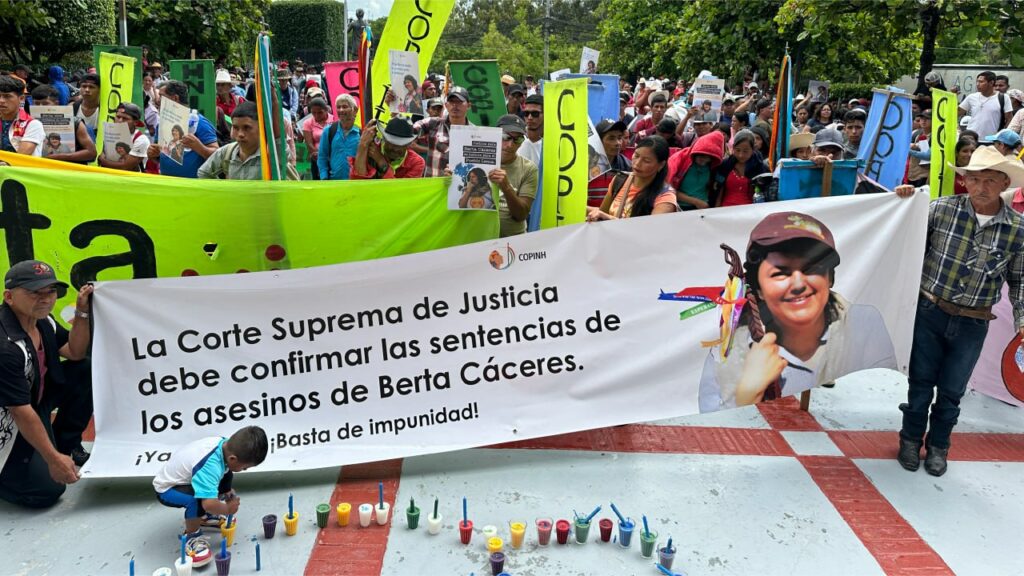
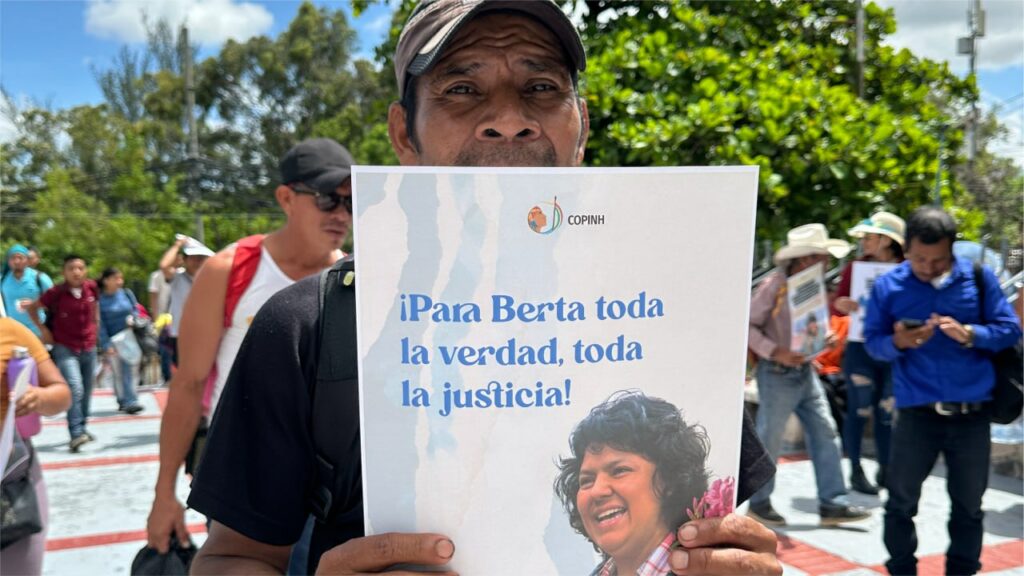
Meanwhile, residents of La Esperanza, Intibucá, warned that every day more people and organizations are joining the demand for the confirmation of the convictions against the seven perpetrators and the co-perpetrator of the crime, in addition to demanding an investigation against members of the Atala family, who are accused of being the masterminds of the murder.
“They don’t want to do anything to them (the masterminds). Here the authorities are in cahoots with the companies, they agree to fix the situation and they come to us to give a certain discourse to the poor, to the humble communities, the campesinos, the women,” claimed Catalina Hernández, resident of the Lenca community.
At the same time, the mobilization also demands that the assassination of campesinos in the valley of Bajo Aguán be investigated, as well as the relations between organized crime and the agro-industrial companies that operate in the region.


